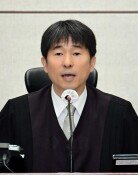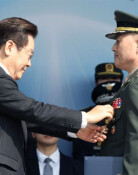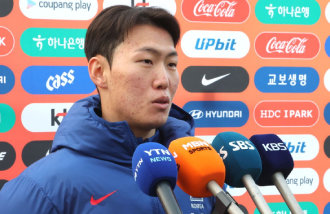[Editorial] Is politics of co-existence viable?
[Editorial] Is politics of co-existence viable?
Posted January. 30, 2001 15:50,
Opposition Grand National Party (GNP) president Lee Hoi-Chang announced that his party would recognize the splinter United Liberal Democrats (ULD) as a floor negotiating group in order to bring an end to partisan strife and pave the way for co-existence among the competing parties.
Ruling Millennium Democratic Party (MDP) chairman Kim Joong-Kwon, as if to echo Lee`s initiative, came up with a proposal for a "politics of mutual survival or co-existence" between the ruling and opposition parties. With the moves, the partisan standoff that has persisted since late last year seems to have entered a thaw. Yet the rival parties have more than once orchestrated similar peace initiatives that ended up going nowhere.
That GNP leader Lee announced the party`s recognition of the ULD as a floor-negotiating bloc is a sign that long-crippled parliamentary functions may soon be normalized. But it is doubtful whether his decision is proper and just. In order to revive the ailing economy, his renunciation of partisan strife was urgently needed.
However, the GNP should not fail to take further issue with the ruling MDP`s decision to "lend" lawmakers to its coalition partner to pave way for the party to form a floor negotiating body. The ruling camp should address the question even before the opposition party demands this step. It is appropriate that the MDP lawmakers who transferred to the ULD should return to their original party.
The rival parties could then amend the National Assembly Law to ease requirements for the formation of a floor group.
In this way, the ULD would gain the status it seeks by more above-board means. In this manner, the political parties would be able to restore the people`s confidence to some degree.
But still worrisome is the ruling camp`s pursuit even greater control of the government and an even more powerful party. It is hardly consistent that MDP chairman Kim is calling for inter-party political co-existence while engineering a partisan offensive against GNP president Lee. Kim contends that Lee must have known that budget funds from the state intelligence agency were allegedly funneled into the former ruling New Korea Party to finance the party`s parliamentary election campaign.
As we have pointed out, officials must get to the bottom of the illegal election funding scandal as soon as possible. In the event any evidence of wrongdoing is found, the GNP leader would have to take due responsibility and offer an apology for the incident.
The question here is whether the ruling party is attempting to exploit the prosecution`s investigation into the illegal funding scandal for political gain.
GNP president Lee must now show his resolve to break with the negative past practices and irregularities that were committed by the former ruling party. The people for better or for worse will assess his behavior at this juncture. At the same time, the ruling party is not justified in attacking the GNP leader with allegations that he must have been aware of the election campaign funding scandal.
If the ruling party launches an all-out political offensive against the opposition GNP, while trumpeting the politics of inter-party survival, genuine political co-existence will hardly be possible. If the rival parties persist in their mutual animosity, they will find it difficult to get out of the muddy swamp of the current partisan standoff.




![쓸개 파열로 “사흘 남았다” 판정받은 시인…18년뒤 “너를 아껴라” 속삭여[손효림의 베스트셀러 레시피]](https://dimg.donga.com/c/138/175/90/1/wps/NEWS/IMAGE/2026/01/08/133113134.1.jpg)


